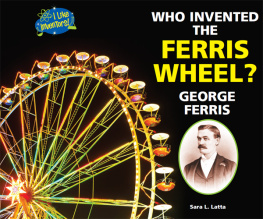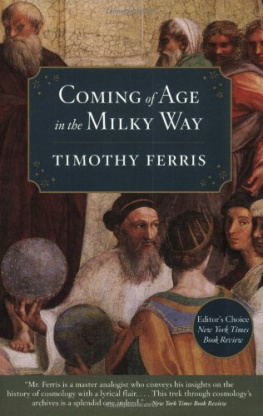Joshua Ferris - Then We Came to the End
Here you can read online Joshua Ferris - Then We Came to the End full text of the book (entire story) in english for free. Download pdf and epub, get meaning, cover and reviews about this ebook. year: 2007, publisher: Little, Brown and Company, genre: Detective and thriller. Description of the work, (preface) as well as reviews are available. Best literature library LitArk.com created for fans of good reading and offers a wide selection of genres:
Romance novel
Science fiction
Adventure
Detective
Science
History
Home and family
Prose
Art
Politics
Computer
Non-fiction
Religion
Business
Children
Humor
Choose a favorite category and find really read worthwhile books. Enjoy immersion in the world of imagination, feel the emotions of the characters or learn something new for yourself, make an fascinating discovery.

- Book:Then We Came to the End
- Author:
- Publisher:Little, Brown and Company
- Genre:
- Year:2007
- Rating:4 / 5
- Favourites:Add to favourites
- Your mark:
- 80
- 1
- 2
- 3
- 4
- 5
Then We Came to the End : summary, description and annotation
We offer to read an annotation, description, summary or preface (depends on what the author of the book "Then We Came to the End " wrote himself). If you haven't found the necessary information about the book — write in the comments, we will try to find it.
Then We Came to the End — read online for free the complete book (whole text) full work
Below is the text of the book, divided by pages. System saving the place of the last page read, allows you to conveniently read the book "Then We Came to the End " online for free, without having to search again every time where you left off. Put a bookmark, and you can go to the page where you finished reading at any time.
Font size:
Interval:
Bookmark:
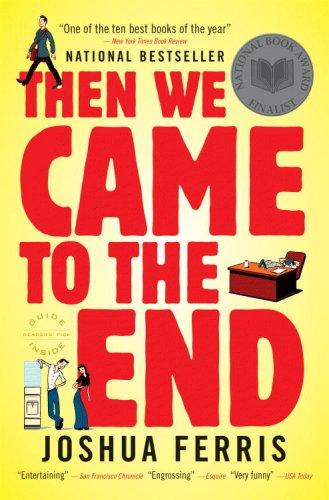
Copyright 2007 by Joshua Ferris
All rights reserved. Except as permitted under the U.S. Copyright Act of 1976, no part of this publication may be reproduced, distributed, or transmitted in any form or by any means, or stored in a database or retrieval system, without the prior written permission of the publisher.
Little, Brown and Company
Hachette Book Group
237 Park Avenue
New York, NY 10017
Visit our website at www.HachetteBookGroup.com.
The Little, Brown and Company Books name and logo are trademarks of Hachette Book Group, Inc.
First eBook Edition: February 2007
The author is grateful for permission to reprint the following: Walking Spanish, by Tom Waits. Copyright JALMA MUSIC (ASCAP). All rights reserved. Used by permission.
The characters and events in this book are fictitious. Any similarity to real persons, living or dead, is coincidental and not intended by the author.
ISBN: 978-0-7595-7228-7
To Elizabeth
Is it not the chief disgrace in the world, not to be a unit; not to be reckoned one character; not to yield that peculiar fruit which each man was created to bear, but to be reckoned in the gross, in the hundred, or the thousand, of the party, the section, to which we belong...
Ralph Waldo Emerson
WE WERE FRACTIOUS AND overpaid. Our mornings lacked promise. At least those of us who smoked had something to look forward to at ten-fifteen. Most of us liked most everyone, a few of us hated specific individuals, one or two people loved everyone and everything. Those who loved everyone were unanimously reviled. We loved free bagels in the morning. They happened all too infrequently. Our benefits were astonishing in comprehensiveness and quality of care. Sometimes we questioned whether they were worth it. We thought moving to India might be better, or going back to nursing school. Doing something with the handicapped or working with our hands. No one ever acted on these impulses, despite their daily, sometimes hourly contractions. Instead we met in conference rooms to discuss the issues of the day.
Ordinarily jobs came in and we completed them in a timely and professional manner. Sometimes fuckups did occur. Printing errors, transposed numbers. Our business was advertising and details were important. If the third number after the second hyphen in a clients toll-free number was a six instead of an eight, and if it went to print like that, and showed up in Time magazine, no one reading the ad could call now and order today. No matter they could go to the website, we still had to eat the price of the ad. Is this boring you yet? It bored us every day. Our boredom was ongoing, a collective boredom, and it would never die because we would never die.
Lynn Mason was dying. She was a partner in the agency. Dying? It was uncertain. She was in her early forties. Breast cancer. No one could identify exactly how everyone had come to know this fact. Was it a fact? Some people called it rumor. But in fact there was no such thing as rumor. There was fact, and there was what did not come up in conversation. Breast cancer was controllable if caught in the early stages but Lynn may have waited too long. The news of Lynn brought Frank Brizzolera to mind. We recalled looking at Frank and thinking he had six months, tops. Old Brizz, we called him. He smoked like a fiend. He stood outside the building in the most inclement weather, absorbing Old Golds in nothing but a sweater vest. Then and only then, he looked indomitable. When he returned inside, nicotine stink preceded him as he walked down the hall, where it lingered long after he entered his office. He began to cough, and from our own offices we heard the working-up of solidified lung sediment. Some people put him on their Celebrity Death Watch every year because of the coughing, even though he wasnt an official celebrity. He knew it, too, he knew he was on death watch, and that certain wagering individuals would profit from his death. He knew it because he was one of us, and we knew everything.
We didnt know who was stealing things from other peoples workstations. Always small items postcards, framed photographs. We had our suspicions but no proof. We believed it was probably not for the loot so much as the excitement the shoplifters addictive kick, or maybe it was a pathological cry for help. Hank Neary, one of the agencys only black writers, asked, Come on, now who would want my travel toothbrush?
We didnt know who was responsible for putting the sushi roll behind Joe Popes bookshelf. The first couple of days Joe had no clue about the sushi. Then he started taking furtive sniffs at his pits, and holding the wall of his palm to his mouth to get blowback from his breath. By the end of the week, he was certain it wasnt him. We smelled it, too. Persistent, high in the nostrils, it became worse than a dying animal. Joes gorge rose every time he entered his office. The following week the smell was so atrocious the building people got involved, hunting the office for what turned out to be a sunshine roll tuna, whitefish, salmon, and sprouts. Mike Boroshansky, the chief of security, kept bringing his tie up to his nose, as if he were a real cop at the scene of a murder.
We thanked each other. It was customary after every exchange. Our thanks were never disingenuous or ironic. We said thanks for getting this done so quickly, thanks for putting in so much effort. We had a meeting and when a meeting was over, we said thank you to the meeting makers for having made the meeting. Very rarely did we say anything negative or derogatory about meetings. We all knew there was a good deal of pointlessness to nearly all the meetings and in fact one meeting out of every three or four was nearly perfectly without gain or purpose but many meetings revealed the one thing that was necessary and so we attended them and afterward we thanked each other.
Karen Woo always had something new to tell us and we hated her guts for it. She would start talking and our eyes would glaze over. Might it be true, as we sometimes feared on the commute home, that we were callous, unfeeling individuals, incapable of sympathy, and full of spite toward people for no reason other than their proximity and familiarity? We had these sudden revelations that employment, the daily nine-to-five, was driving us far from our better selves. Should we quit? Would that solve it? Or were those qualities innate, dooming us to nastiness and paucity of spirit? We hoped not.
Marcia Dwyer became famous for sending an e-mail to Genevieve Latko-Devine. Marcia often wrote to Genevieve after meetings. It is really irritating to work with irritating people, she once wrote. There she ended it and waited for Genevieves response. Usually when she got Genevieves e-mail, instead of writing back, which would take too long Marcia was an art director, not a writer she would head down to Genevieves office, close the door, and the two women would talk. The only thing bearable about the irritating event involving the irritating person was the thought of telling it all to Genevieve, who would understand better than anyone else. Marcia could have called her mother, her mother would have listened. She could have called one of her four brothers, any one of those South Side pipe-ends would have been more than happy to beat up the irritating person. But they would not have understood. They would have sympathized, but that was not the same thing. Genevieve would hardly need to nod for Marcia to know she was getting through. Did we not all understand the essential need for someone to understand? But the e-mail Marcia got back was not from Genevieve. It was from Jim Jackers. Are you talking about me? he wrote. Amber Ludwig wrote, Im not Genevieve. Benny Shassburger wrote, I think you goofed. Tom Mota wrote, Ha! Marcia was mortified. She got sixty-five e-mails in two minutes. One from HR cautioned her against sending personal e-mails. Jim wrote a second time. Can you please tell me is it me, Marcia? Am I the irritating person youre talking about?
Font size:
Interval:
Bookmark:
Similar books «Then We Came to the End »
Look at similar books to Then We Came to the End . We have selected literature similar in name and meaning in the hope of providing readers with more options to find new, interesting, not yet read works.
Discussion, reviews of the book Then We Came to the End and just readers' own opinions. Leave your comments, write what you think about the work, its meaning or the main characters. Specify what exactly you liked and what you didn't like, and why you think so.

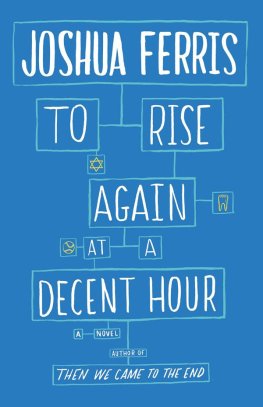
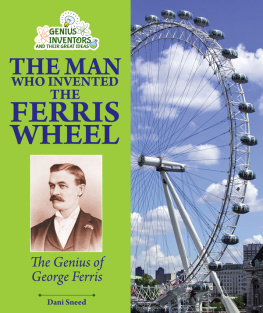


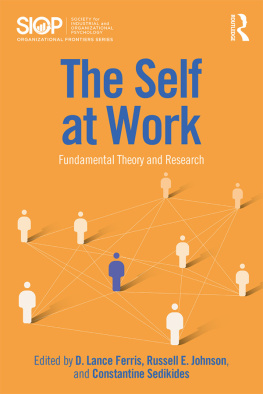
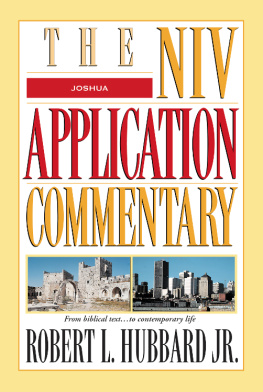

![Joshua Backfield [Joshua Backfield] - Becoming Functional](/uploads/posts/book/120483/thumbs/joshua-backfield-joshua-backfield-becoming.jpg)

